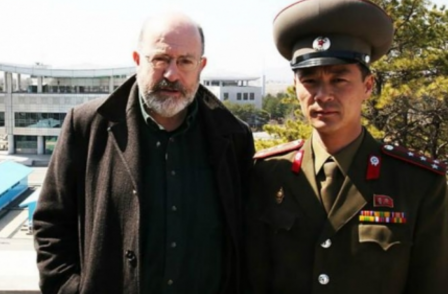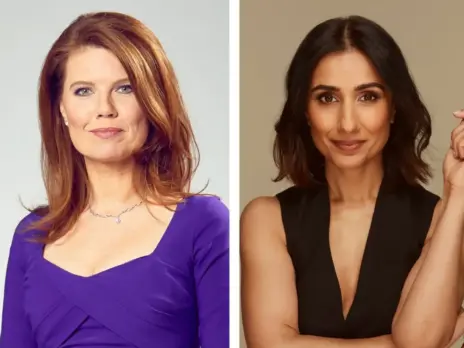
A former London School of Economics student who travelled with BBC journalist John Sweeney to North Korea last year has said that seven out of the ten students on the trip have no issue with the way they were treated by the BBC.
The BBC Trust yesterday censured Panorama for failing to adequately inform students who went on the trip about the risks. Complaints were raised by the father of one of the students on the trip, referred to as Student X, and by the LSE.
The documentary was aired in April last year and involved reporter John Sweeney posing as a professor while secretly reporting and being covertly filmed by a colleague.
The LSE student who spoke to Press Gazette asked not to be named. They said that they had no problem with the way they were treated, instead taking issue with the LSE which he said had complained to the BBC without consulting him or the other students.
The trip to North Korea was organised by Sweeney’s wife Tomiko Newson. The BBC Trust found that she had a conflict of interest because of her dual role as leader of the trip for the LSE and later as part of the Panorama team.
The student said: “I told the LSE you don’t have the right to make this complaint on my behalf.
“Just before the actual documentary was aired the LSE sent out a mass email to every single alumni [outlining its concerns]. It made headlines around the world but they didn’t bother to inform any of the students involved.
“I don’t feel that I wasn’t given sufficient information. We were told that a journalist was coming and we were explained the risks.
“I don’t have a problem with people who reach a different opinion. But student X knew that John Sweeney was a journalist, she helped him film.”
He said that of the ten students on the trip, seven did not have a problem with the actions of the BBC and three – including student X – had various concerns and complaints.
He said: “I found out about the trip because I went to a talk by John Sweeney at the LSE. Student X was there too.
“He come to give a talk about Belarus. We went for a drink at the pub afterwards and he started talking about a North Korean trip.
“We were told that John was going and told about the potential legal risks of going to North Korea with a well known journalist like John Sweeney
“We were told that he would be posing as a professor.”
The former student, who is 28, added: “We were all adults. I thought there was a possibility we might be detained but it was worth the risk. Travelling to North Korea was a once in a lifetime opportunity.”
He said the students weren’t told that a documentary was being filmed until they were in China, preparing to cross over into North Korea: “Before that they had just said that a journalist would be joining us.
“People started making jokes about the cameraman being a spy. At that point the BBC decided to tell us about the documentary in case we started making those sort of jokes in North Korea. He had been presented to us as a friend of the organiser.
“I’ve always thought it was a great opportunity that was worth the risk, and now I’m told that I’m not allowed to make that judgment.
“People need to realise that seven out of the 10 students on the trip don’t feel exploited by the BBC at all. We feel completely happy with the way we were treated by the BBC.
“The BBC have always completely kept us in the loop, which is the opposite of the way the LSE has behaved.
“When I contacted the LSE external relations department just before the documentary aired I was told I would have to wait two months to see someone.”
The LSE external communications department told the student via email that it was not complaining on his behalf, but as an institution, and that three out of the ten students on the trip had strongly did not agree with his view.
He also revealed that in the days before the documentary was aired, the students who went on the trip received an email from an intermediary for the North Korean government threatening to publish their passport numbers.
The BBC said in a statement yesterday: "We have apologised to Student X for the finding by the Trust that insufficient information was given to her ahead of the trip about the involvement of the BBC journalists and the potential risks, which meant that Student X did not have sufficient knowledge on which to give informed consent. We have also apologised to the LSE for the Trust’s finding that the programme created the risk of harm to the LSE’s reputation.
"The Trust recognised that this programme involved a number of finely-balanced editorial judgements and that the BBC spent considerable time evaluating the risks in circumstances which were highly unusual. In the planning for and making of the programme BBC News believed that it was treating all the students and the LSE fairly."
Read the full BBC Trust report here
Email pged@pressgazette.co.uk to point out mistakes, provide story tips or send in a letter for publication on our "Letters Page" blog







